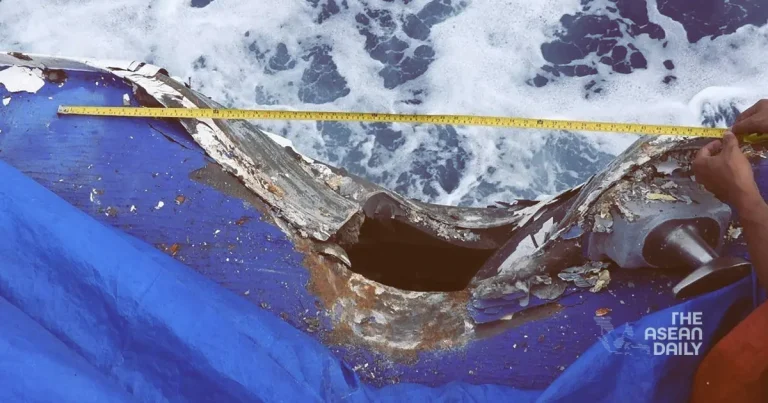20-8-2024 (MANILA) Fresh tensions in the South China Sea have prompted calls for renewed diplomatic efforts between the Philippines and China, as the Philippine Coast Guard (PCG) expresses hope for constructive dialogue following a series of maritime incidents.
The appeal comes in the wake of a pre-dawn collision on Monday involving two PCG vessels—BRP Bagacay and BRP Cape Engaño—and Chinese ships near Escoda shoal. The PCG reported that its vessels sustained significant damage due to what it described as “unlawful and aggressive manoeuvres” by the Chinese vessels.
Commodore Jay Tarriela, PCG spokesperson for the West Philippine Sea, voiced his aspirations for a return to the negotiating table. Speaking to TeleRadyo Serbisyo, he stated, “We are once again hoping and praying that China will eventually realise that this bullying—these unlawful acts they are committing—coupled with pressure from the international community, will compel China to join us in proper dialogue.”
The incident has drawn international attention, with the United States Department of State condemning China’s actions as “dangerous and escalatory measures”. The US has called upon China to adhere to international law and cease its “destabilising conduct”.
Despite the heightened tensions, the National Maritime Council reaffirmed the Philippines’ commitment to diplomacy and peaceful resolution of disputes in the region. The council expressed serious concern over China’s actions, characterising them as “deliberate harassment and infringement” against Philippine sovereignty and jurisdiction in the West Philippine Sea.
Tarriela highlighted recent progress in bilateral relations, referencing an agreement reached between the two nations regarding resupply missions for Filipino troops stationed at BRP Sierra Madre. He suggested that this arrangement, achieved despite incidents around Ayungin Shoal, could serve as a model for future negotiations.
The PCG confirmed that the damaged vessels have successfully reached Pag-asa Island, part of Palawan province, and will proceed with planned resupply missions to Parola Island and other maritime features where coast guard personnel are stationed.
China, for its part, has presented a contrasting narrative of the events. China Coast Guard spokesperson Gan Yu accused the Philippine vessels of acting “in an unprofessional and dangerous manner”, while Beijing’s foreign ministry spokeswoman Mao Ning asserted that the Philippine actions “seriously violated China’s sovereignty”.
As tensions simmer, both nations have previously agreed to increase communication channels to resolve maritime disagreements. A national security official recently floated the possibility of a new agreement following China’s use of flares in the path of a Philippine Air Force aircraft on routine patrol over Bajo de Masinloc.
The ongoing maritime disputes underscore the complex geopolitical landscape in the South China Sea, with the Philippines navigating a delicate balance between asserting its territorial claims and maintaining diplomatic relations with its powerful neighbour. As both sides call for dialogue, the international community watches closely, hoping for a peaceful resolution to the longstanding maritime tensions in this strategically vital region.




